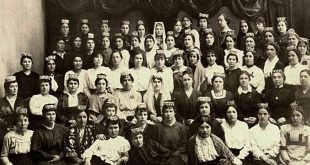In light of the relative dearth of scholarship on the Shia in Scotland and of their religious spaces, this article focuses on an annual ritual procession emerging out of a Twelver Shia imambargah in Edinburgh, Scotland, which situates it both within a pivotal event in Shia history, and its contemporary relevance in the city.
Research on the Shia in Scotland and of their spaces of worship and gathering continues to be under represented in the research field of Muslims in Britain. According to the 2011 census, there are just under 77,000 Muslims in Scotland, with Edinburgh, its capital, home to about 12,400. This article aims to fill in some of these gaps by focusing on a Muharram procession emerging out of a Twelver Shia imambargah in Edinburgh. Drawing from fieldwork conducted from 2011 to 2013, the article provides an ethnographic account of this annual jaloos (ritual procession) in Leith district, examines its evolution, and analyses the jaloos’s signage and related proclamations in English and Urdu. In juxtaposing these elements, I argue that even as the procession is a normative means to commemorate and transmit the core values of the Twelver Shia through the events of Karbala, it actively engages with and responds to stereotypes about Muslims in the West and thus serves simultaneously as a wider public presentation on, and defence of, Islam. By closely examining these Muslims’ public performance of Islam, this article offers a case study of an alternative narrative of Muslims in Britain and sheds new light on the rituals and experience of the Twelver Shia in Scotland.
Bibliographic Information
Title: Twelver Shia in Edinburgh: Marking Muharram, Mourning Husayn
Author(s): Fayaz S. Alibhai
Presented in: Contemporary Islam, 13, pages325–348 (2019).
Language: English
Length: 24 page
 Ijtihad Network Being Wise and Faithful Muslim in the Contemporary World
Ijtihad Network Being Wise and Faithful Muslim in the Contemporary World

